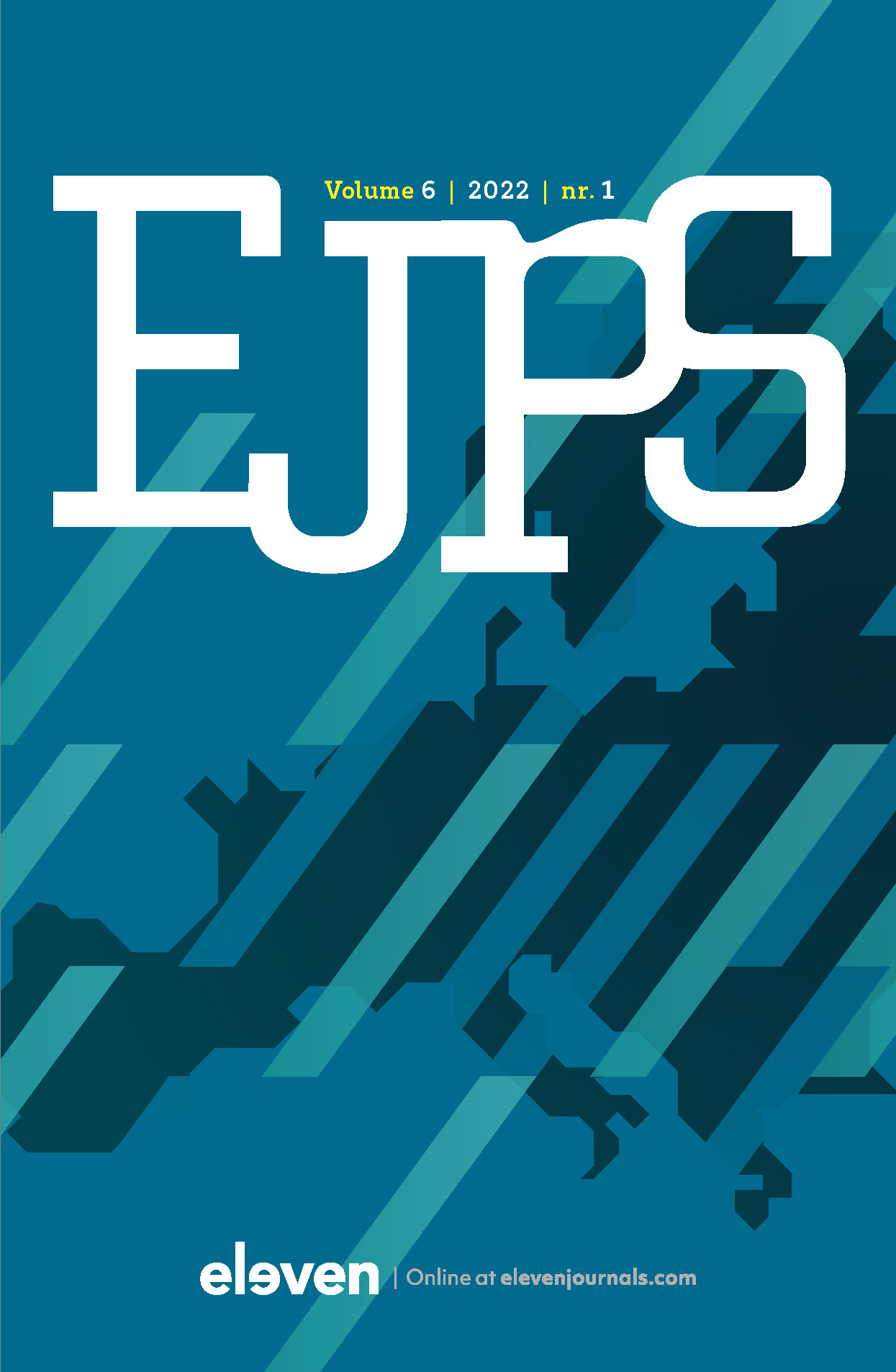|
This article discusses the rarely investigated learning processes of Swedish intra-professional police educators: police teachers, police supervisors and police field training officers. Through the interpretation of three interview studies conducted from a theoretical perspective of experiential learning, reflection and meaning-making, a new understanding of professional development as viewed through the eyes of an educator emerges. The findings exemplify how the empowerment of positive, reflexive and creative intentions amongst intra-professional police educators can be seen as an important component of preparing new police officers as well as developing the Swedish police force. Moreover, it will be implied that this particular process is driven by both intrinsic (the internal drive of the educators) and extrinsic (the educational context of the Swedish police) forces. |


European Journal of Policing Studies
About this journalSubscribe to the email alerts for this journal here to receive notifications when a new issue is at your disposal.
| Article |
|
| Keywords | meaning-making, police education, police educators, professional development, reflexivity |
| Authors | Bengt Bergman, Staffan Karp and Ulrika Widding |
| AbstractAuthor's information |
| Article |
|
| Keywords | police legitimacy, police conduct, American police, Swedish police, perceptions |
| Authors | Michelle N. Eliasson |
| AbstractAuthor's information |
|
Police officers in various countries utilize a wide range of policing strategies, for example, some countries practice de-escalation strategies when encountering conflicts, while others use militarized approaches. This article aims to understand how police officers describe good and bad policing and how these descriptions can be linked to policing approaches and strategies. The data consists of 52 qualitative interviews with American and Swedish police officers. Findings indicate that officers describe good and bad policing in relation to the following three aspects of their occupation: how they manage their first encounter with civilians, how well they manage their and others’ emotions, and their professionalism. Overall, American and Swedish officers describe similar characteristics of good and bad policing, both reflecting attributes which can be associated with de-escalating strategies. |
| Article |
|
| Keywords | field training officers, police in-field training, police student, embodiment, supervision |
| Authors | Linda Antoniett Hoel |
| AbstractAuthor's information |
|
This article examines the role of the Norwegian field training officers (FTOs) as they see it and what they regard as important to teach police students attending in-field training. In Norway, FTOs are lower rank police officers, many of whom have newly graduated from the Norwegian Police University College (NPUC). The FTOs interviewed in this study described police work as a bodily practice and the subsequent teaching and learning as body oriented. The analysis shows that reflection on policing in-field is “inward looking”. The article situates this focus as an example of the FTOs’ “identity work” as resistance to the institutional requirements related to higher education. The article discusses how the purpose of in-field training and the purpose of higher police education entail an “identity tension” that may result in a salient problem regarding a common and holistic understanding of the purpose of police (higher) education. |
| Article |
|
| Keywords | traumatic stress, reflective practice, police work, institutionalizing, deportation of children |
| Authors | Line Lundvoll Warth, Åse Langballe and Jon-Håkon Schultz |
| AbstractAuthor's information |
|
An arrest can be a potentially traumatic event for parents and children. In Norway, the National Police Immigration Service (NPIS) has introduced four child-specific principles – safety, understanding, predictability and involvement – to guide a new practice to prevent traumatic stress. We explored how the police understand and practise the new approach when arresting families to be deported. We conducted 20 semi-structured interviews with police officers who arrest migrant families. We analysed the levels of understanding, from descriptive to practical and reflective understanding. Analysing the levels of understanding makes it possible to decide where and how to improve the practice and the delivery of instruction. We found that police officers who demonstrate a reflective understanding are capable of reflecting on their own actions and use the principles to reduce stress, thereby operationalizing their “know-how” in practice. We suggest creating institutional activities that promote reflection-on-action to develop the collective institutionalization of the new practice, meeting the pressing challenges of contemporary policing. |
| Call for papers |
|


